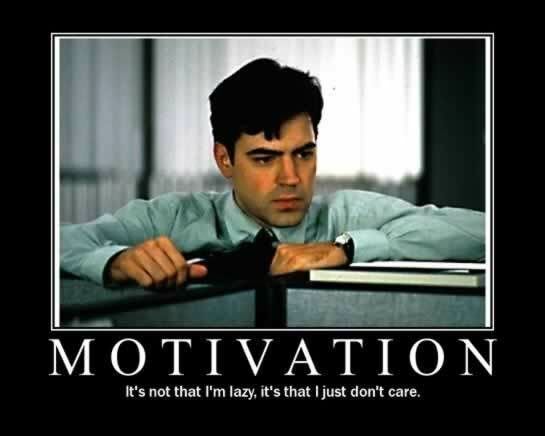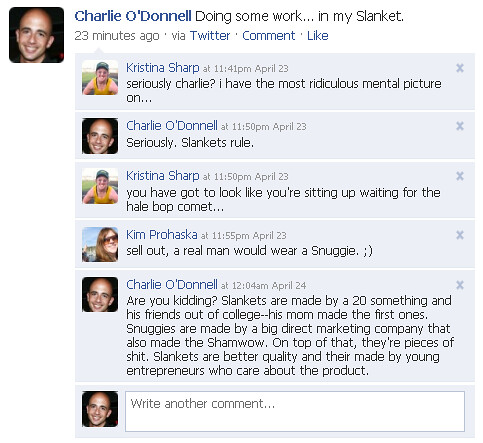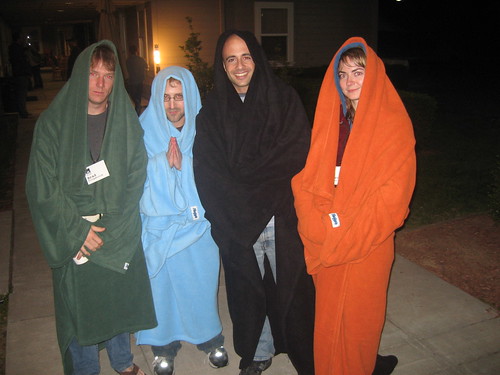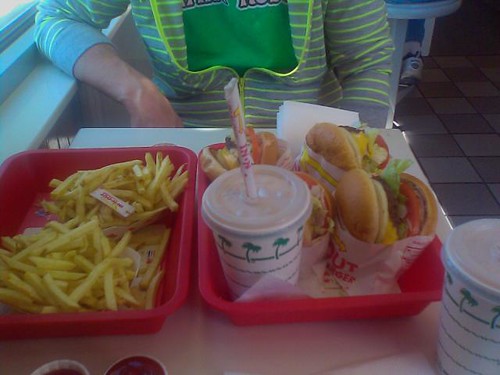Mayday! Mayday! Is your career is going down (or sideways...) Take part in Path 101's "Career Mayday" and get help from experts and professionals
 Are you stuck in a rut?
Are you stuck in a rut?
Don't like what you're doing, but can't figure out how to get ahead, or get out?
Ask for career advice on Path101.com on May 1st -- May Day -- as part of Path 101's "Career Mayday" Advicefest.
Path 101 has built up a community of career experts and experienced professionals to help get answers to your most pressing career questions.
What's even better is that when you ask or answer a question, you can connect your Path 101 account to Twitter or Facebook to help get answers from your network. Check out some of these great questions and answers from our site:
Are unpaid internships worth it?
Staying in touch after an interview when there isn't an opening right now
Tomorrow, when you ask a question and connect your Twitter account, the Tweet will look something like this:
Mayday! Mayday! My career needs help! Please help me get an answer to my Path 101 career question. http://bit.yl/32vwesd #mayday Plz RT
When you answer, it will look like this:
Just rescued someone through Path 101's Career Mayday. Save a drowning career, give advice: http://bit.yl/32vwesd #mayday Plz RT
Just make sure you connect your Path 101 to Twitter... After you ask or answer, at the bottom of that question, you can click a link to make a connection. If you ask anonymously, we can't publish the tweet either (but that shouldn't stop you from just asking a question, of course).
Design or accident: How did Tumblr become Tumblr?
When Tumblr first came out, it was promoted as "instant, no-overhead". The post on the Union Square Ventures blog about their first investment in the company is all about personal expression, aggregation, curation. When I first talked to David about it, he stressed the simplicity.
You know what no one seemed to be talking about? The community.
A while back, I recommended Tumblr as a dead-simple blogging platform to a friend. Now, if you're just writing full blog posts and not taking part in the Tumblr community, you'd be a bit of  an odd duck. It would be the 2009 version of someone who decided to write an economics blog on LiveJournal.
an odd duck. It would be the 2009 version of someone who decided to write an economics blog on LiveJournal.
Hmm... LiveJournal. Is Tumblr the new LiveJournal... or LiveJournal for adults?
In both cases, there's clearly something *more* going on than just publishing. In Tumblr, there's a community with it's own social currency--reblogging. Nearly three quarters of my dashboard is reblogs of others. Do my friends only express themselves in relation to others--unable to convey original thought? Or is it a function of how easy this is to do? Was this community behavior evolution or intelligent design?
 The other aspect of services like Tumblr, Vimeo, or Foursquare, for example, that is tough to replicate is the nature of the initial users. Doostang has this attribute as well--although instead of hipster geeks, it started out with private equity geeks. That has not only dictated the makeup of the Doostang community, but has ultimately impacted the business model there as well--the site is now a pay for placement recruiting service.
The other aspect of services like Tumblr, Vimeo, or Foursquare, for example, that is tough to replicate is the nature of the initial users. Doostang has this attribute as well--although instead of hipster geeks, it started out with private equity geeks. That has not only dictated the makeup of the Doostang community, but has ultimately impacted the business model there as well--the site is now a pay for placement recruiting service.
So, what is Tumblr? Is it the application? The people? An emergent behavior? Can it be replicated?
My recent tracks on Last.fm
The most recent tracks I've been listening to on last.fm:
Path 101 acquisitions
Firesale at a nearby startup. We bought some computers at 15 a piece to add to our crawling infrastructure... The cart we just found on the sidewalk.
Path 101: Mint.com for your career
Sometimes, it takes you longer to realize things about your own business--especially somewhat obvious (in hindsight) business analogies.
I was thinking about Mint.com, the personal finance site, and I never realized how similar our goals are at Path 101.
Mint is building a suite of free tools to help manage a mainstream problem that effects everyone--in their case, managing your budget. Their target audiance? What about... everyone who makes money? Spends money? Wants more money? It's a pretty huge potential audience and we feel the same way about our career guidance site. Path 101 is targeted at anyone who works and wants to figure out what's next.
Now, the argument could be made that not a lot of people who make money actually manage their money well, which is what I thought initially about Mint. However, Mint is making their tools so easy that they're not just converting the beancounters, they're helping people who have never ever kept a budget before--introducing people to the concept of budging and personal financial management. We want to do the same for careers. Thinking about your career can be an intimidating thing and we want to shed some light on the process and make it easier.
Mint.com makes it easy for you to upload your financial data to the system, but moreover they give you a compelling reason to--to get recommendations and gain insight into your budget, the same way we want someone to get value from uploading their resume and other information.
This enables Mint to gain a tremendous information advantage from a business standpoint. By working hand in hand with their users in managing their finances, they are the best positioned to broker offers from people who want to access those users. That's ultimately where we want to be with Path 101. By getting to know our users better, because we helped them manage their career, we'll ultimately be the best place to broker recruiter and employer access--particularly given that we'll know so much more about each user.
They're also using the network effects of having all that user data to improve the product. The more Mint users there are, the more insight they get into trends and norms, which can, in turn, be presented back to the user in a useful, comparitive way.
It's a business and product model that no doubt works in other areas, too, but I feel like Mint is a particularly relevent comparison given the size of the potential market, the importance of this aspect of someone's lifestyle, and the focus on data.
I'm thinking she died for a reason...
I wrote a post about losing our family dog that now has nearly 100 comments on it...mostly dead dog stories.
Listen to this story...
"well i had a dog in kindgarden threw 4th grade and it was hit by a car in those grades i didnt have any friends and it was my only friend i would talk to her i would pet her for hours she was my only and best friend i loved her dearly the day i was told she died i cried for months but right after she died i made my human best friend and then other and now im 13 and have alot of friends and im thinking she died for a reason. R.I.P buttercup"
My del.icio.us links
Links I've recently tagged on del.icio.us:
When did your investors start using your service?
I found this neat little viral app, When did you join Twitter?
Apparently, I joined on February 12, 2007... and then about a month later, I totally got it.
This is a note I wrote to Fred Wilson... note the date:
From: Charlie O'Donnell
To: Fred Wilson
Sent: Fri Mar 09 10:44:03 2007
Subject: Do you twitter?You should check it out... I didn't get it at first, but now that there's a group going to sxsw, I get it. Its like an OS for sms. I'd never text all the people I'm texting now...but its a really seemless way to text groups and inidividuals at the same time.
It needs to be packaged for the MySpace gen better, and also marketed to groups and conferences. I'm connected to the sxsw group and they randomly connected me to two other twitter people in a 3 person group. It can solve the prob of walking into a conf and not knowing who the heck to meet or talk to first.
What's even better... check this out:

So basically, what we can take from this is that it takes Fred three days to act on e-mails and four months to invest.
5 things I learned at Social Foo
1) Great hiring is partly function of how many people you put into the top of the funnel. You won't put extra pressure on yourself to hire anyone you don't feel great about, because you know you'll see more, and it will help you get a good sense of what you're looking for.
2) Take feature suggestions out of the hands of executives. Instead, make problem/opportunity identification their job and let the process figure out the solutions through testing and data.
3) Slankets are awesome. Path 101 got Gary Clegg at The Slanket to hook up every single SocialFoo attendee with a Slanket. We thought it would be appropriate because it gets cold at night in Sebastopol, plus, as you can see, Slankets are an important part of the social graph:
4) At the end of the day, the most successful people are those that are dedicated to building really great stuff, not the people who worry too much about beating the competition--collaboration FTW!
5) Building a few deep connections with people is better than trying to network at scale. This is the same reason I love SXSW. When you can hangout with people in your industry in a relaxed social setting, you get to know them a lot better. They become people versus just business cards or Twitter icons. I greatly enjoyed getting to know the folks I met at SocialFoo and look forward to hopefully running into them again soon.
My recent tracks on Last.fm
The most recent tracks I've been listening to on last.fm:
My del.icio.us links
Links I've recently tagged on del.icio.us:
I tagged it with: outplacement
My del.icio.us links
Links I've recently tagged on del.icio.us:
I tagged it with: entrepreneurship, startup, business, ideas, inspiration
My recent tracks on Last.fm
The most recent tracks I've been listening to on last.fm:



![Reblog this post [with Zemanta]](http://img.zemanta.com/reblog_e.png?x-id=25039263-1d14-48bc-a83a-8609051aec86)






